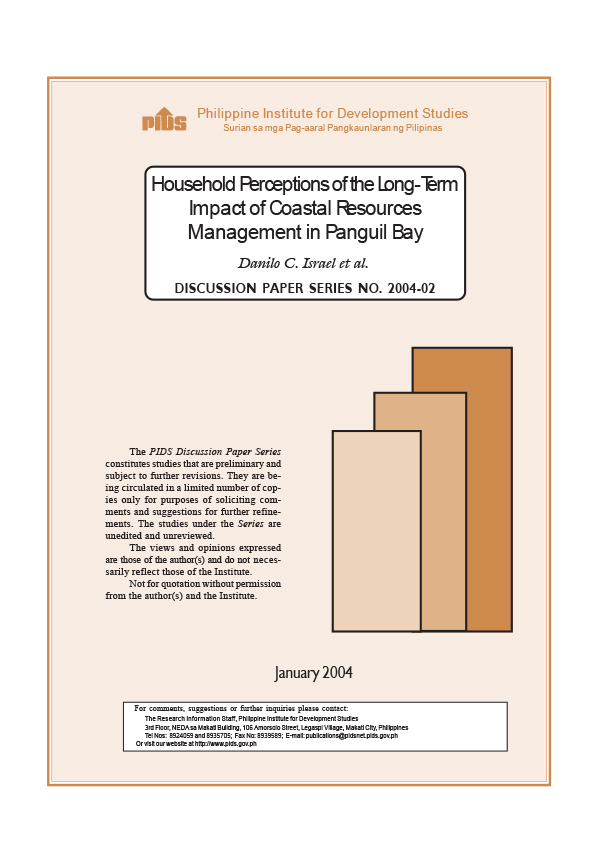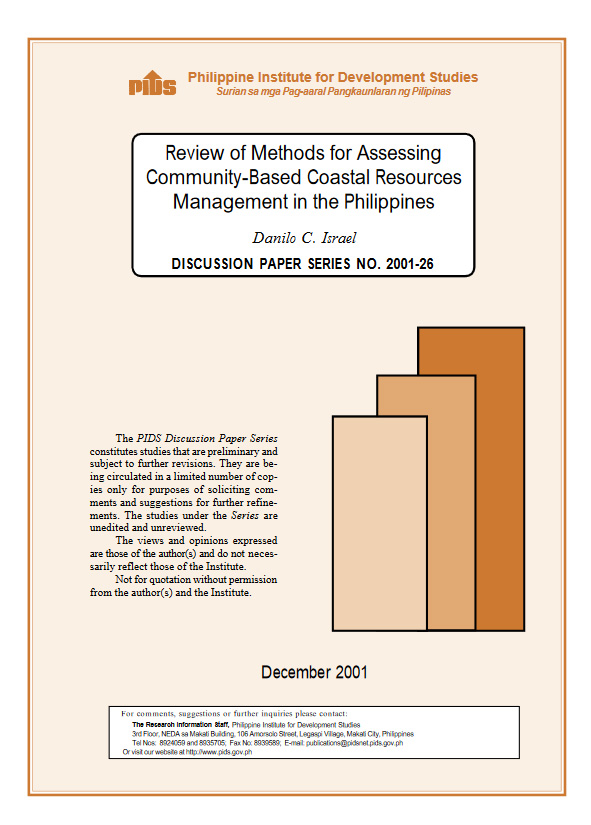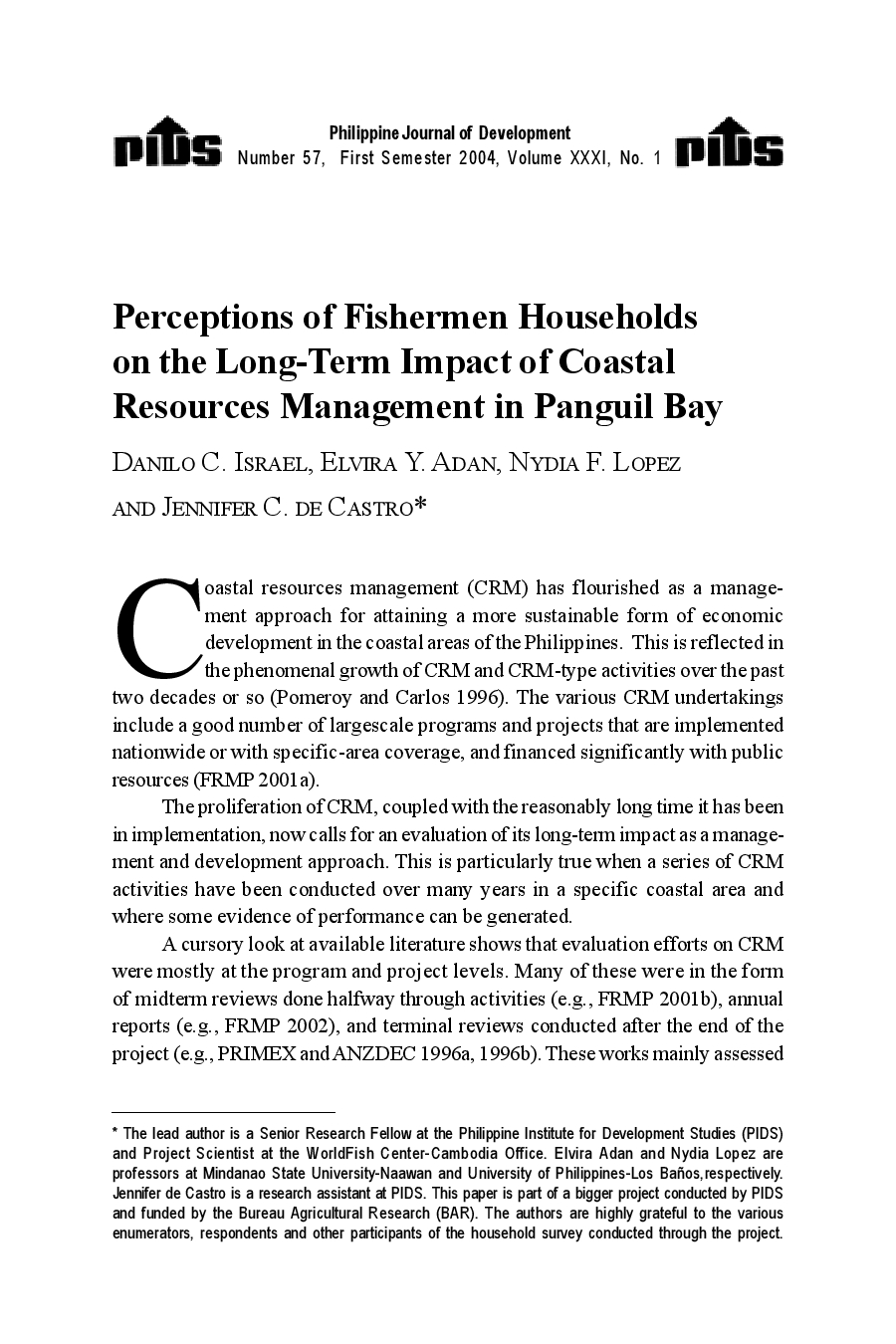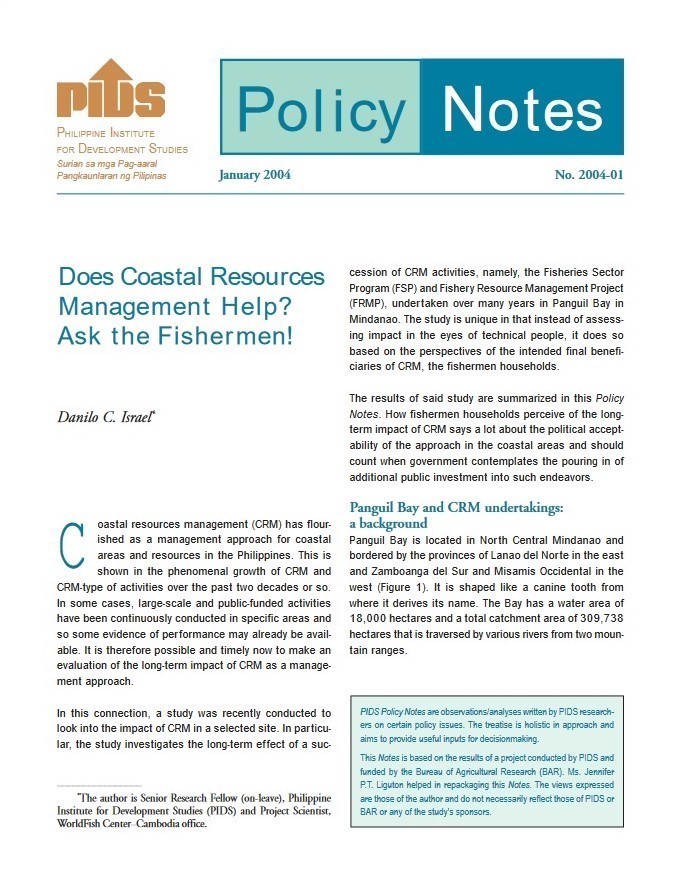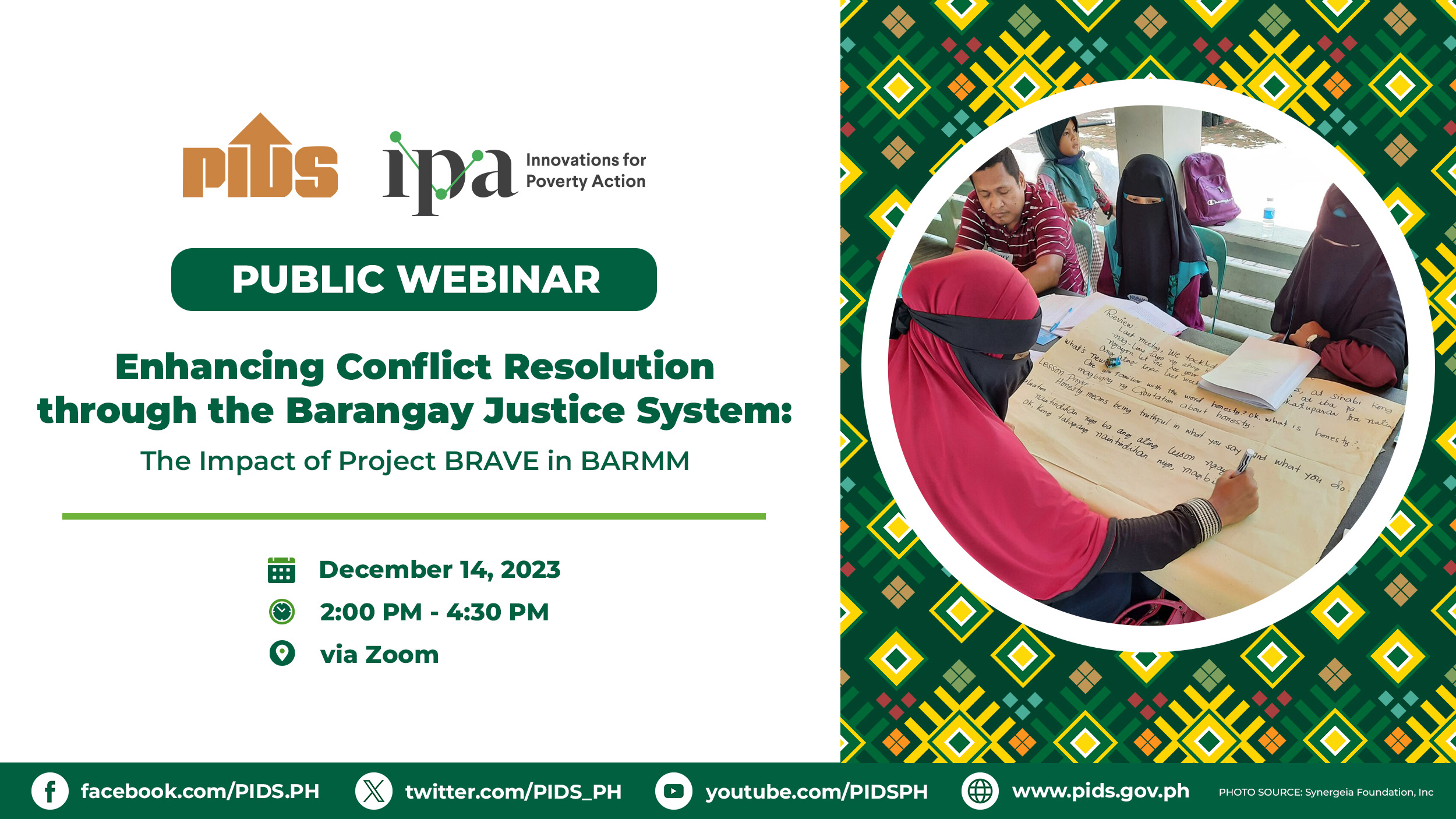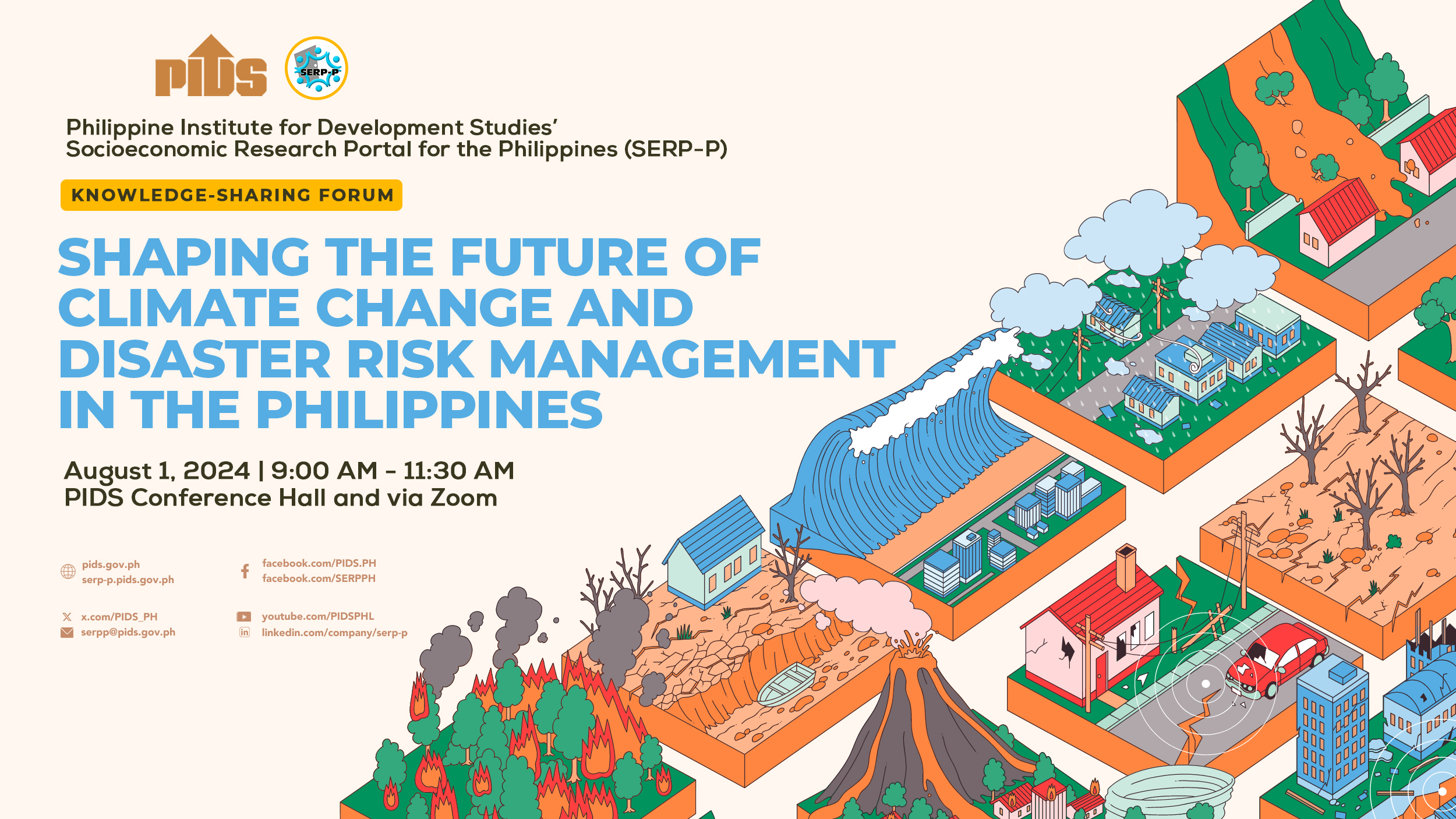The study analyzed the perceptions of fishermen households of the long-term impact of Coastal Resources Management (CRM) using Panguil Bay in Mindanao as case study. It used data gathered through a survey that measured perceptions using a ladder diagram along a 10-point scale. The study found that fishermen households in Panguil Bay perceived that their harvest, income and overall well-being have deteriorated in the last ten years when CRM was in implementation and will continue to decline in the next ten years. They further believed that the well-being of the coastal resources on which they depend on has decreased in the last ten years and will continue to do so in the future. Based on these results, the study concluded that in the eyes of fishermen households in Panguil Bay, CRM has failed to attain the long-term objectives of improving their well-being and that of the coastal resources in their areas. Since the perceptions of the fishermen households are important to their acceptance of CRM as a management approach, the study asserted that efforts must be exerted to seriously address the limitations of CRM for its future improvement. It further argued that the phenomenal growth of the approach and the large public investment put into it by the country now requires the in-depth evaluation of their impact and performance. Along this line, the study suggested that CRM impact indicators be further refined, the variables for their actual measurement developed, and the required time-series data and information be gathered on a consistent basis.

